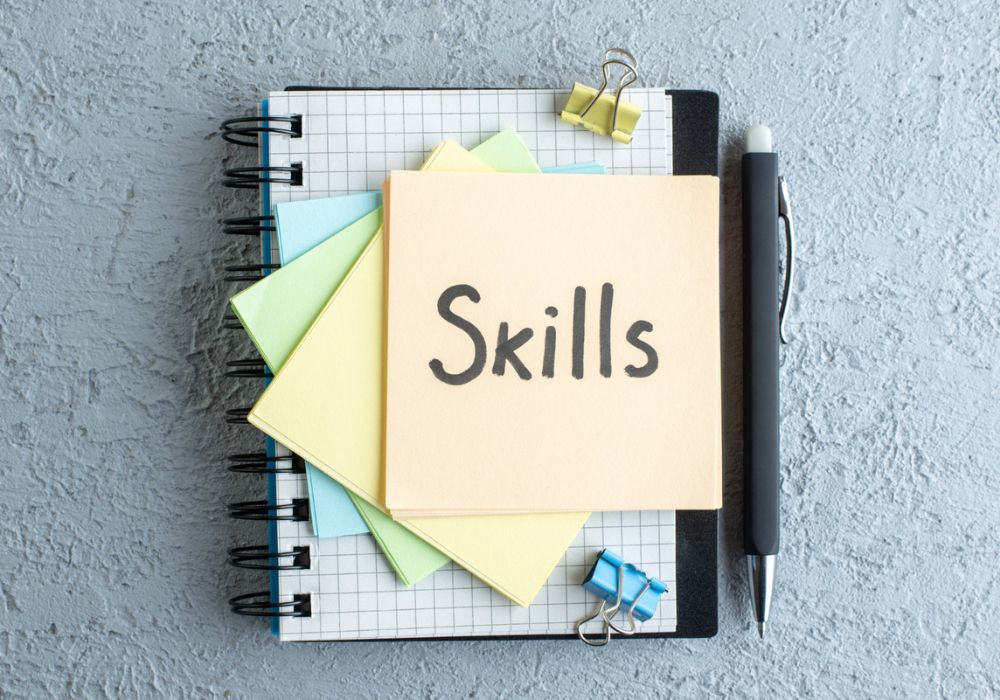As we navigate through life, we quickly realize that success and fulfilment go beyond academic achievements and formal education. While classrooms provide us with a foundation of knowledge, it is the life skills we develop outside those walls that truly shape our ability to thrive in adulthood.
Life skills encompass a wide range of abilities that are essential for personal growth, career success, and overall well-being. Beyond academic knowledge, life skills equip us with the tools necessary to handle the challenges and complexities of the real world. They enable us to navigate relationships, communicate effectively, manage our finances, make informed decisions, and adapt to changing circumstances.
Life skills are the practical abilities that empower us to live purposefully and lead fulfilling lives. This blog post will explore the most crucial life skills that go beyond traditional education, equipping individuals with the tools they need to lead meaningful and prosperous lives.
Life Skills: Why Do We Need Them?
While we learn academic and theoretical knowledge through training in classrooms, our lives eventually extend to a much larger area, which includes the social aspects at a major level. This includes the ability to communicate and express, understand and empathize, talk and behave sensibly. It also comprises the ability to handle life challenges, quick thinking in troubled situations, and the ability to think beyond bookish knowledge, or it can also be called the application of bookish knowledge. These skills are not only valid in personal and professional life but also help in highlighting the theoretical knowledge a person has. Therefore, the presence of such skills in a person is far more essential in light of this. Let us understand what those skills are:
1. Communication Skills
Effective communication is one of the fundamental life skills that impact every aspect of our lives. Beyond the classroom, the ability to express thoughts clearly, listen actively, and engage in meaningful conversations becomes paramount. Strong communication skills foster better relationships, whether in personal or professional settings. They enable us to articulate our ideas, negotiate conflicts, and collaborate effectively with others. Moreover, communication skills play a pivotal role in job interviews, presentations, and networking opportunities. To develop this skill, individuals should actively seek opportunities to practice public speaking, engage in debates, join discussion groups, and enhance their written communication abilities.
Effective communication is not limited to verbal expression alone; nonverbal cues such as body language and facial expressions also contribute to conveying messages accurately and building rapport. Active listening, a crucial component of effective communication, involves attentiveness, empathy, and the ability to understand and respond to others’ perspectives, fostering a deeper connection and mutual understanding. In addition to spoken and written communication, technological advancements have expanded the range of communication mediums, emphasizing the importance of adapting to various platforms like video conferencing, instant messaging, and social media.
2. Emotional Intelligence
Life’s challenges often demand more than just intellectual capacity; they require emotional intelligence. Emotional intelligence encompasses self-awareness, self-regulation, empathy, and interpersonal skills. It allows us to understand, manage and address our own emotions while also recognizing and empathizing with the emotions of others. By cultivating emotional intelligence, individuals can build healthier relationships, resolve conflicts amicably, and make sound decisions based on empathy and understanding. Developing emotional intelligence can be achieved through self-reflection, practicing mindfulness, seeking feedback from others, and engaging in activities that foster empathy and emotional regulation.
Emotional intelligence plays a vital role in leadership and teamwork, as it enables individuals to effectively manage and motivate others, navigate conflicts, and foster a positive work environment. In addition to interpersonal relationships, emotional intelligence is crucial for personal well-being. It helps individuals cope with stress, handle setbacks resiliently, and maintain a positive outlook even in challenging situations. Cultivating emotional intelligence requires ongoing effort and practice. It involves developing self-awareness by recognizing and understanding one’s own emotions, triggers, and patterns of behaviour. Furthermore, emotional intelligence empowers individuals to communicate effectively by adapting their message and delivery to the emotional needs and preferences of others, fostering stronger connections and reducing misunderstandings.
3. Financial Literacy
Financial literacy is a quintessential life skill that equips a person with the knowledge and skills to manage their personal finances effectively. Understanding concepts such as budgeting, saving, investing, and debt management is essential for long-term financial security and independence. Unfortunately, traditional education often overlooks this critical aspect of adulthood. To enhance financial literacy, individuals should educate themselves about personal finance, seek guidance from financial advisors, and develop responsible financial habits. By acquiring this skill, individuals can make informed decisions, avoid financial pitfalls, and work towards achieving their financial goals.
Financial literacy goes beyond basic money management; it also encompasses understanding complex financial products, such as loans, mortgages, insurance, and retirement plans. Being well-versed in these areas empowers individuals to make informed and well-thought choices that align with their financial goals and risk tolerance. Moreover, financial literacy enables individuals to identify and evaluate investment opportunities, assess their potential risks and returns, and make sound investment decisions.
This knowledge can contribute to wealth creation and long-term financial stability. In today’s digital age, financial literacy also involves being aware of online scams, identity theft, and cybersecurity threats. Individuals should stay updated on best practices for protecting their financial information and be cautious when sharing personal details online. Financial literacy is not a one-time achievement but a continuous learning process. It is important to stay updated on financial trends, regulations, and economic changes to make informed financial decisions and adapt to evolving circumstances.
4. Problem-Solving And Critical Thinking
Life is full of challenges, and the ability to think critically and solve problems is indispensable. Beyond the classroom, individuals encounter complex situations that require analysis, creativity, and resourcefulness. Problem-solving and critical thinking skills empower individuals to evaluate options, identify solutions, and make informed decisions. They encourage innovative thinking, effective decision-making, and the ability to adapt to changing circumstances. To develop these skills, individuals can engage in activities that promote problem-solving, such as puzzles, brain teasers, and strategic games. Additionally, seeking diverse perspectives and approaching situations with an open mind can enhance critical thinking abilities.
Critical thinking and problem-solving skills are not limited to individual success; they also contribute to collective problem-solving and decision-making within teams and communities. These skills foster collaboration, synergy, and the ability to find innovative solutions to complex challenges. Furthermore, critical thinking enables individuals to evaluate information critically, differentiate between reliable sources and misinformation, and make well-informed judgments. In an era of information overload, honing these skills is crucial for making sound decisions and avoiding cognitive biases. Developing critical thinking and problem-solving skills requires continuous practice and a growth mindset. Embracing a lifelong learning approach, seeking feedback, and reflecting on past experiences can further enhance these skills and contribute to personal and professional growth.
5. Time Management And Organization
In the fast-paced world of adulthood, effective time management and organization skills are crucial. Balancing work, personal life, and various responsibilities requires individuals to prioritize tasks, set goals, and manage their time effectively. Proactive time management helps individuals avoid procrastination, meet deadlines, and maintain a healthy work-life balance. Organization skills enable individuals to stay focused, reduce stress, and maintain an orderly environment. Techniques such as creating schedules, using productivity tools, and setting realistic goals can significantly enhance time management and organizational abilities.
Moreover, effective time management and organization skills contribute to increased productivity and efficiency. By optimizing the allocation of time and resources, individuals can accomplish tasks more effectively, meet targets, and seize opportunities for growth. Additionally, these skills promote stress reduction and overall well-being. When individuals have a clear plan and organized approach, they can better manage their workload, reduce overwhelm, and create space for self-care and leisure activities. Furthermore, effective time management and organization skills enable individuals to adapt to unexpected changes and handle multiple priorities with greater ease. Flexibility and adaptability are essential in today’s dynamic work environment, and these skills provide a solid foundation for navigating complex challenges. Cultivating these skills involves self-discipline, setting boundaries, and continuously assessing and adjusting priorities. Regular reflection and evaluation of one’s time management and organization strategies can lead to continuous improvement and long-term success.
6. Adaptability And Resilience
In today’s rapidly changing world, the skill to adapt and bounce back from challenges is essential. Adulthood often presents unexpected circumstances, transitions, and setbacks that require flexibility and resilience. Developing adaptability allows individuals to adjust to new environments, embrace change, and seize opportunities for growth. Resilience, on the other hand, enables individuals to overcome obstacles, recover from failure, and maintain a positive mindset in the face of adversity. Cultivating these skills involves embracing uncertainty, being open to new experiences, developing problem-solving abilities, and fostering a growth mindset that views setbacks as opportunities for learning and growth.
By cultivating adaptability and resilience, individuals can navigate the unpredictable nature of life with greater ease and confidence. These skills empower individuals to embrace change as an opportunity for personal growth and development. Adaptability and resilience serve as valuable assets in both personal and professional realms, enabling individuals to thrive in dynamic and demanding environments.
7. Collaboration And Teamwork
Collaboration and teamwork skills are vital for success in both personal and professional settings. The ability to work effectively with others, contribute ideas, and collaborate towards a common goal is highly valued in today’s interconnected world. Collaborative skills involve active listening, respecting diverse perspectives, providing constructive feedback, and finding common ground. Effective teamwork requires individuals to communicate openly, delegate tasks, and leverage each team member’s strengths. By cultivating collaboration and teamwork skills, individuals can foster harmonious relationships, enhance productivity, and achieve collective success.
Collaboration and teamwork skills create a synergistic environment where collective efforts produce superior results. By valuing and embracing diverse perspectives, individuals can tap into a wealth of knowledge and innovative ideas, leading to more innovative solutions. Effective collaboration and teamwork foster a sense of camaraderie and mutual support, enhancing overall job satisfaction and fostering a positive work culture.
8. Leadership And Influence
Leadership skills go beyond holding a position of authority; they involve the ability to inspire, motivate, and guide others toward a shared vision. Leadership is about influencing others positively and empowering them to reach their full potential. Leadership skills include effective communication, strategic thinking, decision-making, and the ability to inspire trust and build strong relationships. Developing leadership abilities involves seeking leadership opportunities, taking responsibility, and continuously improving one’s skills through learning and feedback. Even without a formal leadership role, individuals can cultivate leadership skills by demonstrating initiative, being reliable team members, and serving as positive role models for others.
Strong leadership skills contribute to organizational success by fostering a culture of collaboration, innovation, and high performance. Leadership skills also encompass the ability to adapt to changing circumstances, make tough decisions, and navigate complex challenges with resilience and integrity. Effective leaders create a positive and inclusive work environment where individuals feel valued, motivated, and empowered to contribute their best work.
Conclusion
While formal education imparts valuable knowledge, it is the acquisition of life skills that allow individuals to thrive in adulthood. Skills like effective communication, emotional intelligence, financial literacy, problem-solving, and time management are vital for personal and professional success. As we embark on our journeys beyond the classroom, let us prioritize the development of these essential abilities.
By investing in our personal growth and continuously honing these skills, we can navigate the challenges of adulthood with confidence, resilience, and a greater sense of fulfilment. Let us remember that education extends far beyond textbooks and classrooms, encompassing the multifaceted skills that enable us to lead meaningful, successful, and well-rounded lives.





